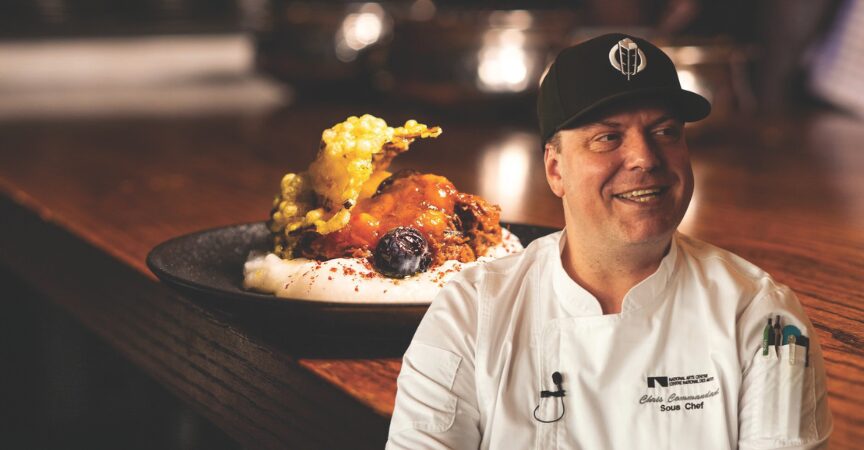Bridging Indigenous Foodways & Culinary Leadership: A Conversation with Chef Chris Commandant
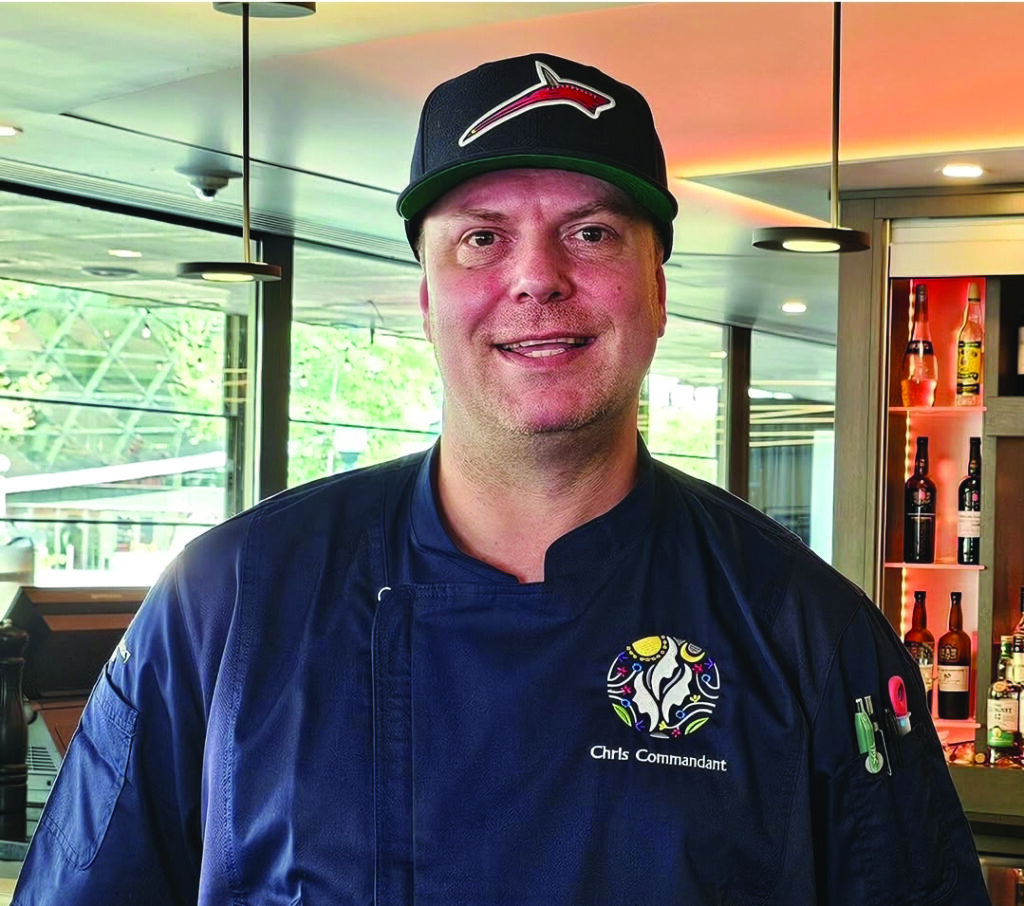
Tucked inside the National Arts Centre (NAC) in Ottawa, 1 Elgin is a culinary stage for Canada’s diverse flavours. With a menu that evolves seasonally and a commitment to locally sourced ingredients, the restaurant offers a refined yet inviting dining experience, making it a must-visit for theatre-goers, food
lovers, and top chefs from across the country. And in the kitchen, Sous Chef Chris Commandant has a lot on his plate.
A Kanien’keha:ka from the Wahta Mohawks First Nation near Bala, Ontario, Commandant is driven by
a passion for preserving and sharing Indigenous culinary traditions. His work extends beyond the art of cooking—he is deeply engaged in conversations around Indigenous food sovereignty, food security, and traditional cooking methods.
His classical training enables him to seamlessly blend Haudenosaunee culinary heritage with contemporary techniques, crafting innovative dishes that honour the flavours and stories of his Muskoka terroir. At 1 Elgin, that means pushing boundaries while staying rooted in authenticity—an approach that defines not just his food, but his leadership.
As Ontario Director and Secretary of the Indigenous Culinary of Associated Nations (ICAN), Commandant is also a key figure in a movement to elevate Indigenous cuisine on the national stage. He’s not just a chef—he’s a steward of Indigenous foodways, a mentor, and a driving force behind a growing conversation about sustainability, authenticity and the intersection of food and cultural identity.
Commandant’s path to becoming a champion of Indigenous cuisine was not one of early intent but rather one of discovery. “I was always hungry as a kid,” he admits. “I thought, if I worked in kitchens, I’d never go hungry.” Food, however, quickly became more than a means of sustenance. It became a source of fascination and, ultimately, an avenue for storytelling.
Raised in a household where food was both a necessity and a symbol of resilience, Commandant was instilled with an appreciation for the power of sustenance. His father, deeply connected to their Mohawk heritage, taught him that food is sacred, not to be wasted, and that harvesting should always be done with respect. These early lessons would later form the foundation of his cuisine. “Take what you need to sustain yourself, and leave some for the next generation,” he says, echoing a philosophy that has guided his approach to both cooking and leadership.
Like many aspiring chefs, Commandant initially sought formal training in an unrelated field—journalism. But it was in the kitchens of Toronto, where he worked part-time in the late 1990s, that he found his true calling. “There’s an energy in a kitchen that’s addictive,” he says. “The pace, the creativity, the problem-solving—it became clear that this was where I needed to be.”
Yet, as an Indigenous chef entering the industry, he quickly realized that representation was lacking. “At the time, being an Indigenous chef wasn’t something you advertised,” he explains. “There was a stigma attached to it, and a lot of us felt the need to just blend in.” That began to change as he reconnected with his roots and found his voice—not just as a chef, but as an advocate for Indigenous food knowledge.
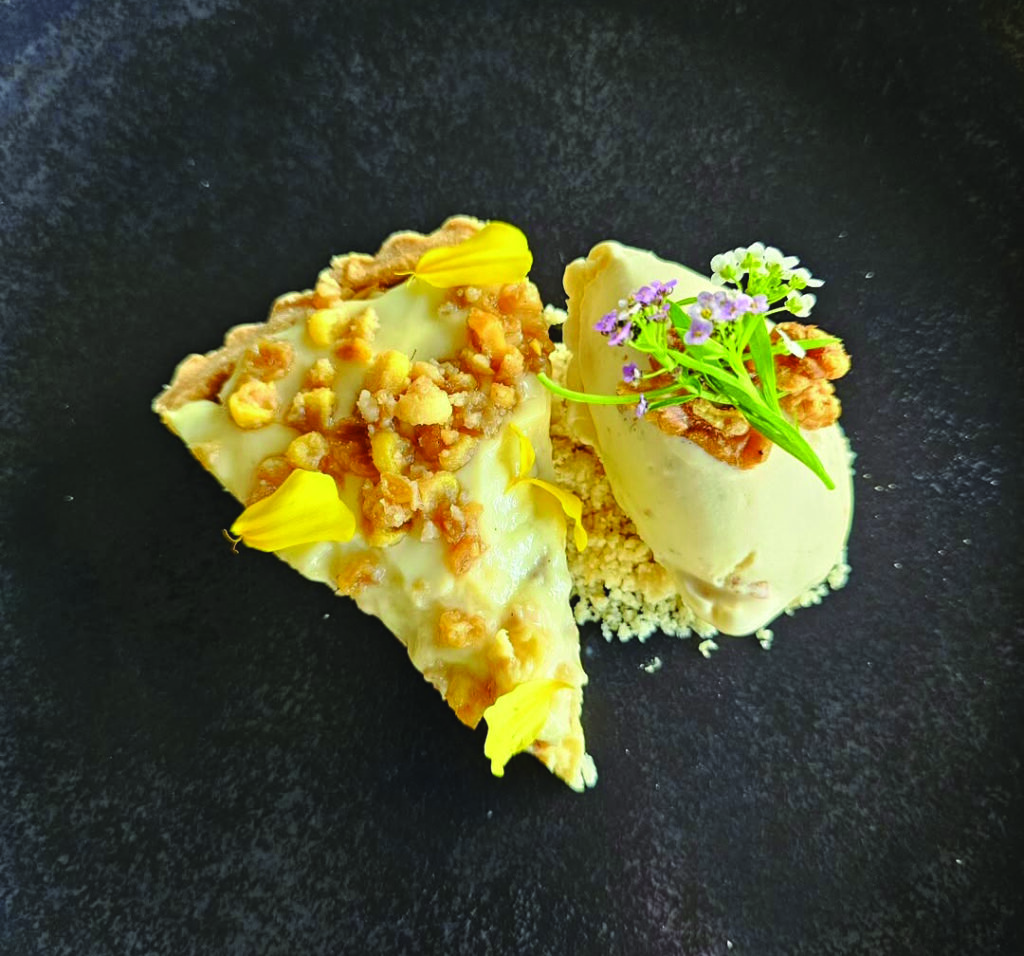
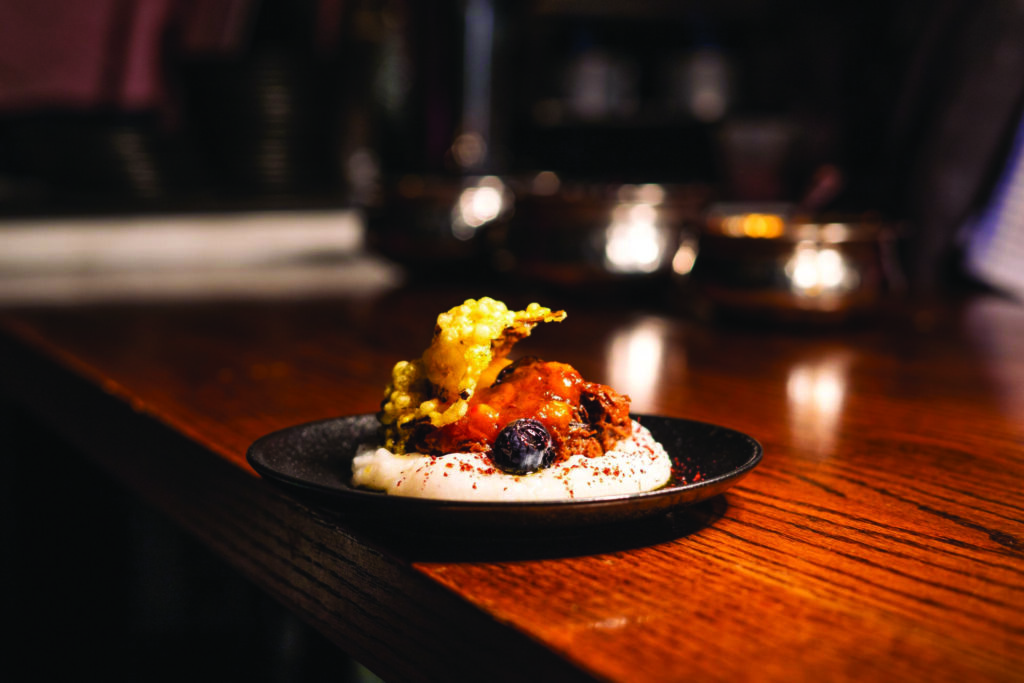
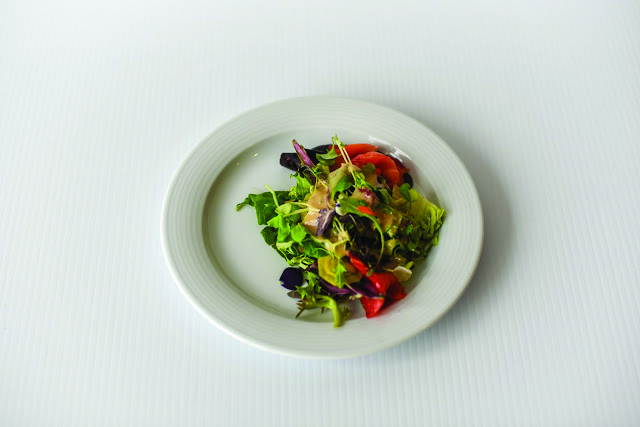
A Defining Moment for Indigenous Cuisine
For Commandant, there has never been a better time for Indigenous cuisine to take centre stage. With consumer interest in Canadian experiences at an all-time high, the demand for Indigenous culinary tourism is surging. He sees a rare and urgent opportunity for Indigenous chefs and food entrepreneurs to redefine the national food landscape. “This is our moment,” he says. “People are actively looking for authentic, locally-rooted dining experiences, and Indigenous cuisine offers a depth of storytelling and connection that no other food movement can replicate. This isn’t just a culinary moment—it’s a cultural shift. Indigenous food isn’t niche; it’s foundational. And now is the time to ensure it claims its rightful place in our national dialogue.”
But this isn’t just about food—it’s about a complete ecosystem. Indigenous culinary traditions are inextricably linked to sustainable agriculture, ethical foraging, and a holistic approach to hospitality. Commandant emphasizes that the industry must balance growth with responsibility, ensuring that Indigenous foodways remain true to their origins while adapting to modern demands. “The challenge is scalability,” he explains. “Our ingredients—wild game, foraged plants, traditional grains—are not mass-produced, and they shouldn’t be. We have a sacred supply of certain key ingredients, and the point is not to over-harvest them to meet market demand. It’s about maintaining that balance—honouring the ingredients while also finding ways to make the cuisine more accessible. But that means we need to innovate, educating consumers while finding sustainable ways to bring these flavours to a wider audience.”
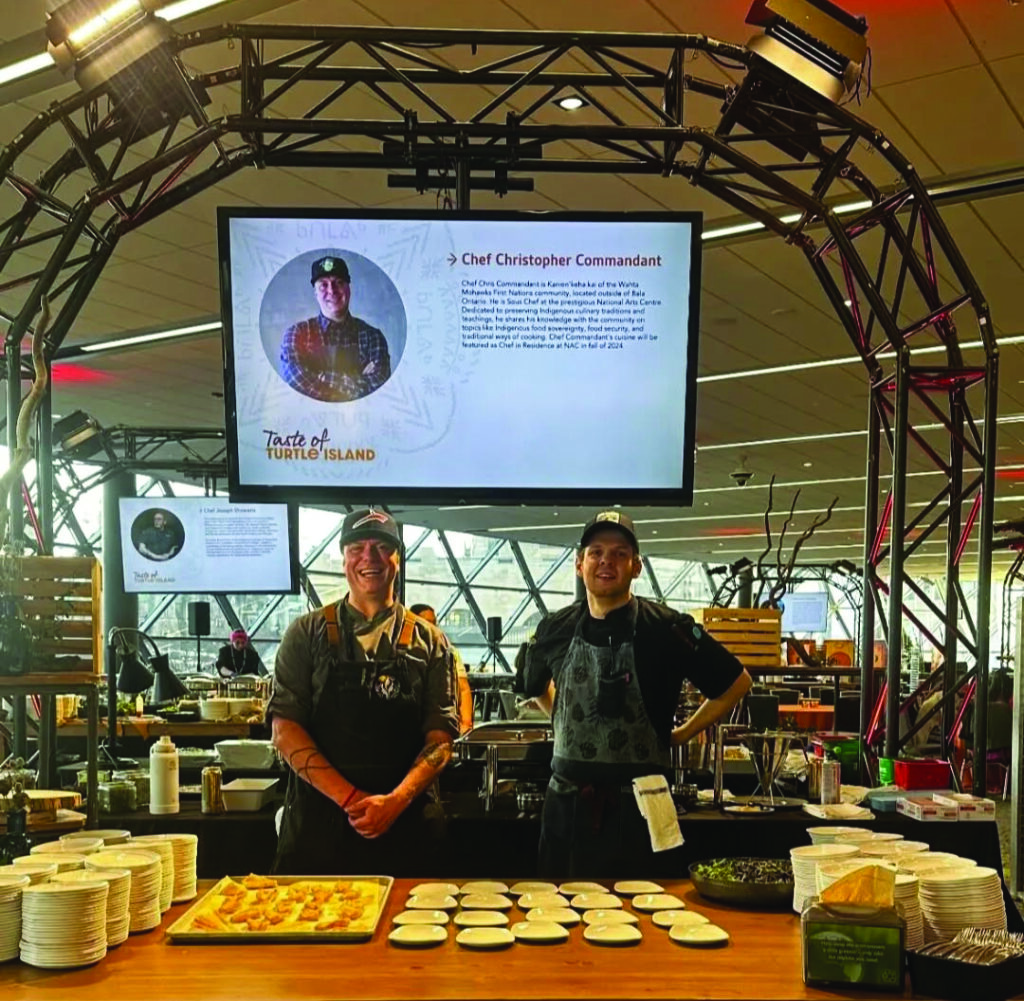
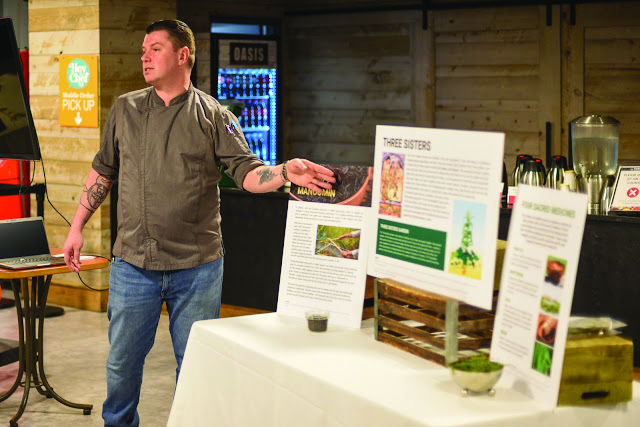
Commandant envisions Indigenous cuisine as a cornerstone of Canada’s evolving food identity, not a passing trend. Through his work at the NAC, Commandant has helped introduce Indigenous ingredients to a new audience. He works closely with his team—many of whom are non-Indigenous—to educate them on the history and significance of Indigenous food traditions. “We’re not all just wild rice, cranberries, and salmon,” he emphasizes. “Our food culture is as vast and diverse as the land itself. Maybe it’s not about using the exact same ingredient but about creating an experience that respects the original while allowing for sustainable substitutes. That’s the challenge—how do we bring Indigenous cuisine into a broader culinary conversation without sacrificing its integrity?”
Leading Through Consensus
Commandant’s approach to leadership is deeply influenced by his Mohawk heritage. “In our communities, leadership isn’t about hierarchy or majority—it’s about consensus,” he explains. “If nine people say no, and one person says yes, we don’t shut that one person down; we listen. Maybe they see something the rest of us don’t.”
This concept of “aggressive listening,” as he calls it, has shaped the way he manages his kitchen and mentors his team. “It’s about giving people space to be heard, even when their perspective challenges the status quo.” This, he believes, leads to stronger teams and better outcomes. “When you create an environment where people feel valued, they invest more in the work they’re doing. They care more.” He recalls one of the most pivotal moments of his career—a crisis that tested his ability to lead under pressure. A few years ago, a fire broke out at the NAC, leading to chaos in the kitchen. In the midst of the
emergency, the executive chef suffered a cardiac event. “That was the moment I realized leadership isn’t just about managing a team—it’s about being the person they look to in times of uncertainty,” he says. “I had to remain calm because they needed me to.”
For Commandant, leadership is also about fostering respect—both in and out of the kitchen. “A simple ‘good morning’ can set the tone for the entire day,” he says. “Acknowledging your team as people first is key. When people feel seen and heard, they perform at their best.”
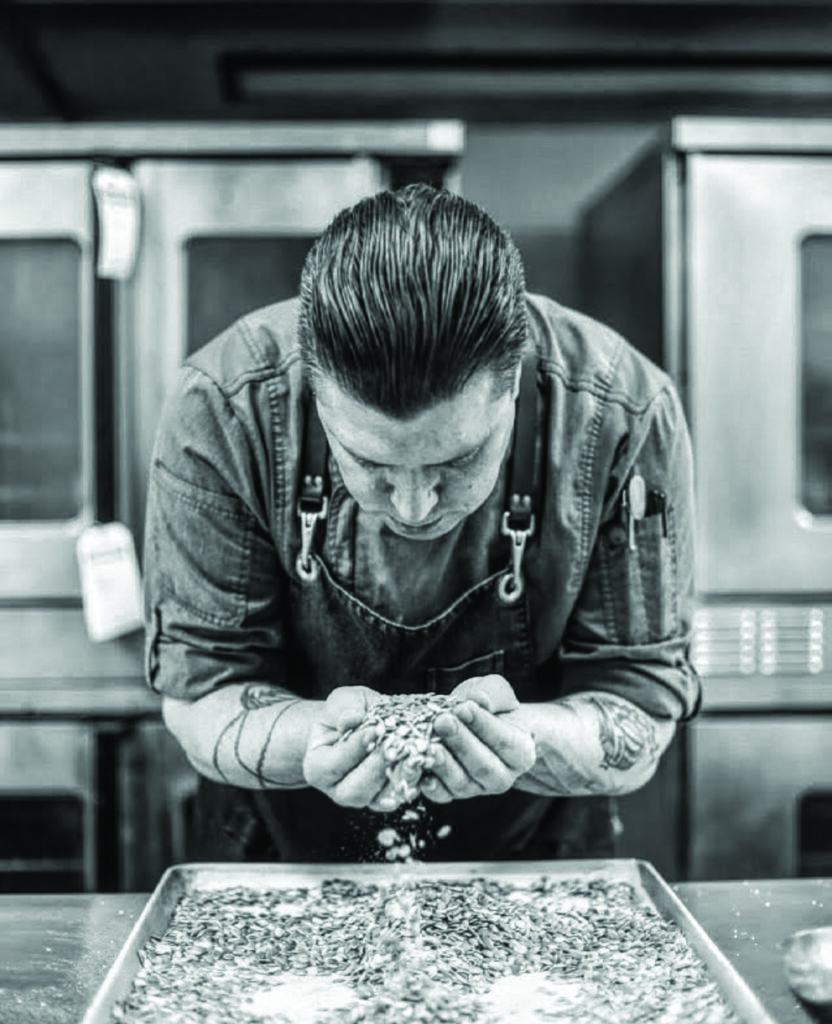
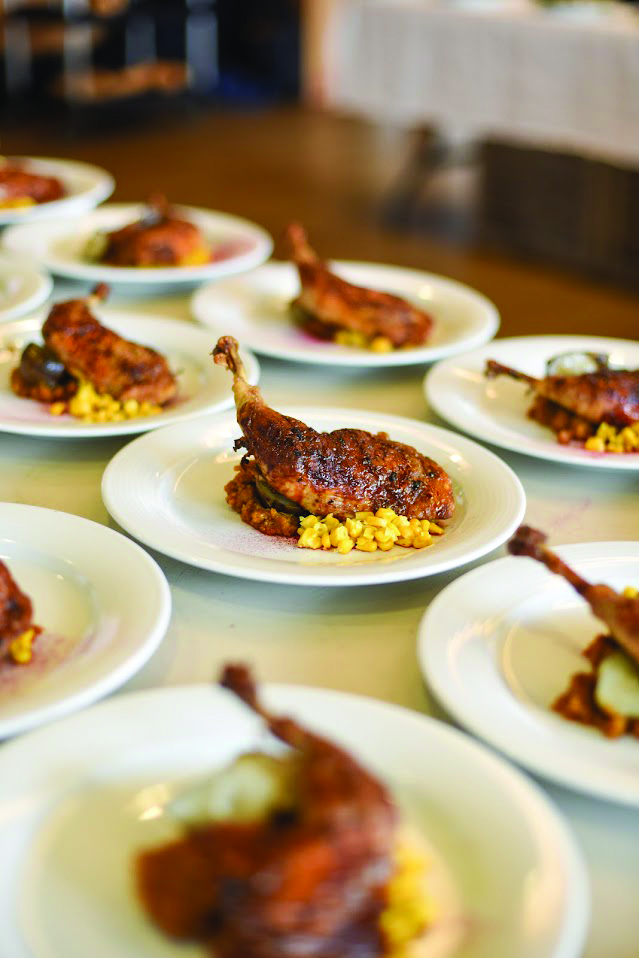
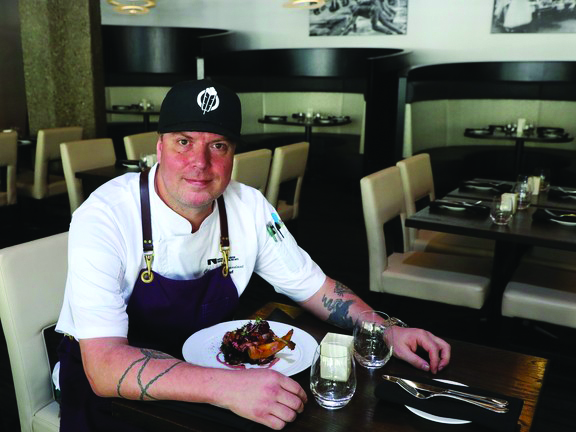
The Next Generation
As the Indigenous culinary movement gains traction, Commandant is optimistic about its future. “We’re at a turning point,” he says. “For the first time, we’re seeing Indigenous chefs not just existing within the industry but thriving. Our food is no longer an afterthought—it’s being recognized for what it is: an essential part of Canada’s culinary identity.”
He credits organizations like ITAC and ICAN and events like RC Show for helping to elevate Indigenous cuisine on a national scale. At this year’s show, he will be leading a Chef’s Table discussion on appreciation versus appropriation, a topic he believes is critical to advancing Indigenous foodways in a respectful manner. “It’s not about gatekeeping,” he says. “It’s about education. It’s about creating
opportunities for non-Indigenous chefs to engage with our food in a way that honours its origins.”
But for Commandant, the most rewarding aspect of his work is mentorship. “If one of my cooks leaves my kitchen because they’ve outgrown it and are ready for a bigger role, I’ve done my job,” he says. “I want to see more Indigenous chefs leading kitchens, running their own restaurants, and teaching the next generation.”
His vision is clear: a future where Indigenous ingredients and food traditions are not seen as niche, but as a fundamental part of Canadian cuisine. “Food is one of the most powerful ways we tell our stories,” he says. “By keeping these traditions alive, we’re not just preserving history—we’re shaping the future.”
Follow Chef Chris CommandantIG: @mohawk_chef



